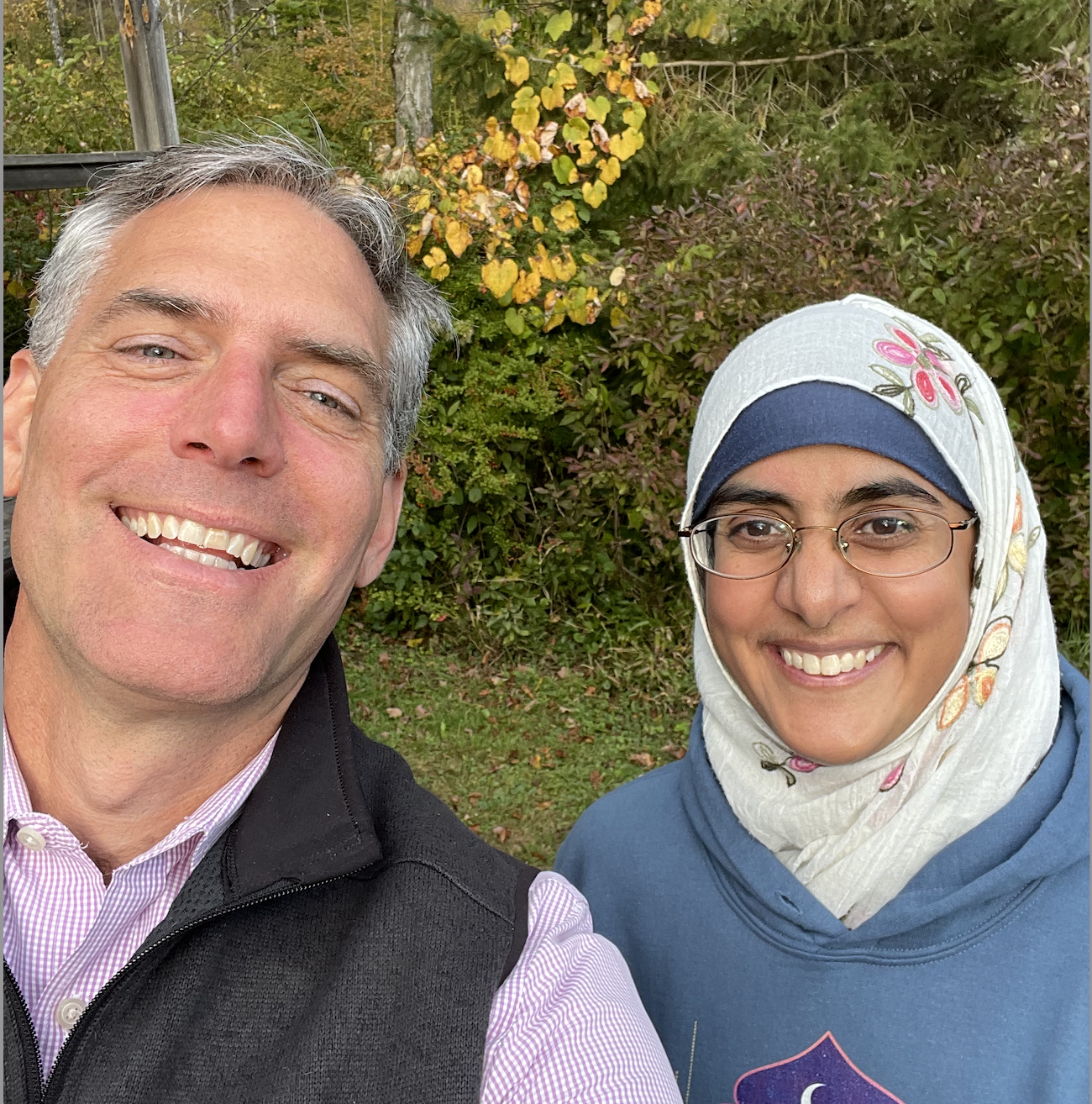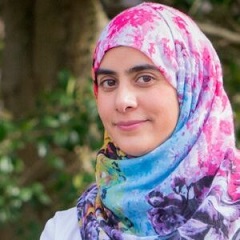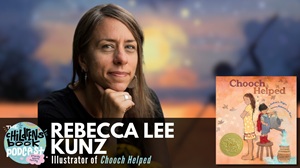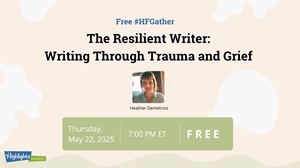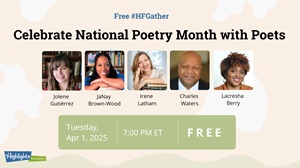What You’ll Find In this Podcast
Intisar Khanani joined George Brown to discuss writing the Mighy Girls series, being a mentor and mentee at the Highlights Foundation, and her writing process as an intuitive writer.
Podcast Highlights
Intisar on writing the Mighty Girls series:
I wanted to not only reflect the beautiful diversity of our world, but also the different ways that we can be mighty. What it might mean to be mighty, in what has historically been dismissed as feminine ways. To be mighty by being compassionate, by being kind. Mercy, persistence, things that are not necessarily gendered, but have been looked at as feminine for centuries. And finding the strength in that. Allowing our heroes and our heroines to fight the good fight and win, not by brute force or political or economical strength or magic, but through being strong in compassion, kindness, and in deep and genuine ways.
Intisar’s perspective on when someone should take a Whole Novel Workshop with the Highlights Foundation:
I would say make sure that you get to a place where you feel very good about your manuscript; that you know you’ve put in the work; that you know how to put in, and are ready to move forward with new insight.
Intisar on her writing process:
I am not a daily writer. I would love to be close to a daily writer…for me, I’m a very intuitive writer. And it took a long time to be like, yeah, these plotting books are just not for me. And every time I try their advice, it wrecks my process since I need to just trust myself. And that was a hard thing, because most books don’t acknowledge that there can be an intuitive approach to writing books…so I had to learn to respect my own process.
Intisar on being mentored during the Muslim Storytellers Fellowship at the Highlights Foundation:
My first year, I had S.K. Ali and it was amazing to work with her. And then when I was invited to be a mentor, I was told to make a wish list of any living author that I would love to have provide a craft mentorship. I kind of was disbelieving that this was possible. But I went ahead….I’m working on a dystopian kind of science fiction fantasy novel (mesh of tech and magic) and so I put N.K. Jemisin at the top of my list to get her feedback on the opening chapters of that story. And I might have screamed when I found out she said yes… She’s kind of the queen of dystopias, from as far as I’m concerned. And you know, as a woman of color, just such a role model for me, writing really important books that deal with serious issues. But at the same time, I won’t say fun stories because they can be heavy–but just so incredibly well written and well built. So I had the opportunity to share a few chapters with her, and chat with her about craft and publishing and it was just, it’s one of those things that I will probably carry with me the rest of my life.
Full Transcript
George: Hey listeners, this is George Brown at the Highlights Foundation. I just had a great podcast interview with Intisar Khanani. I hope you’ll take a listen and join me in this wonderful session. Welcome to the Highlights Foundation gather podcast where our mission is to positively impact children by amplifying the voices of storytellers who inform, educate, and inspire children to become their best selves, today’s guest is my friend Intisar Khanani, welcome.
Intisar: Thanks so much, George.
George: Intisar this is great. So this is well, let’s see where to start. This is like your third or fourth visit here at the Highlights Foundation. I want to talk a little bit about that, but I was struck when I looked at your website and the I don’t know whether you call it the tagline, but the lead there is writing Mighty Girls and Diverse Worlds. And so to me that says so much about you and about your characters. But can you talk a little bit about what it’s like when you think about writing Mighty Girls?
Intisar: Absolutely. So I grew up, what I call a global nomad. I and the product of cultures I lived in another country. I lived in Saudi Arabia as an expatriate for years. And I traveled in immensely and the absolute beauty and diversity of the world around me was something that I took for granted, but every time I went to books and, you know, fantasy was my drug of choice. I didn’t see that diversity reflected there. And further, when I, as I was growing up I started seeing stronger female character. But they were always almost always defined as strong in a patriarchal way, so they were mighty because they became sorceresses or ninjas or they could beat the boys at the boys game. And as I started to write, I wanted to not only reflect the beautiful diversity of our world, but also the different ways that we can be mighty. What it might mean to be mighty, in what has historically been dismissed as feminine ways. To be mighty by being compassionate, by being kind. Mercy, persistence, things that are not necessarily gendered, but have been looked at as feminine for centuries. And finding the strength in that. Allowing our heroes and our heroines to fight the good fight and win, not by brute force or political or economical strength or magic, but through being strong in compassion, kindness, and in deep and genuine ways.
George: I love that and from I feel that in you from the like from getting to know you in that so that love because it’s so fitting it feels right. Well you told me at I think it was breakfast or lunch the other day you said you were working on a character and it feels like it falls right into that that mighty girl.
Intisar: Oh thank you.
George: So you tell me just a little bit about the one that you’re working on here.
Intisar: So yeah, I’m working on the 3rd book and the Sunbolt Chronicle. And that series features a biracial third culture kid, so a part of my heritage in there, and she is traveling through a kind of fast-paced action adventure story. Her world, which is loosely based off of history, local cultures, from stretching from Africa across the Solano region and into East Asia, and it’s very much a story about facing colonial powers and learning to stand up against them. But my character, Hitomi, she’s staunchly anti violence and so being anti violence in a violent world, you know, how do you how do you handle that? How do you move forward? How do you fight oppression and colonial powers when you don’t want to kill anyone? It’s not something we see explored. In young adult literature, very much a lot of times there’s body count. It’s OK to kill the bad guys because they’re bad guys, but what if it’s just not OK to kill? Then how do you, you know, how do you win? How do you define success? And how do you find that strength in yourself when you have to decide between violence and standing up for what you think? This is right or saving yourself. So they’re all hard questions and I don’t necessarily have all the answers, but it’s amazing to be able to explore them.
George: And so this is the third in a series?
Intisar: Yeah. Now the first actually just came out relaunched in September. So I’m kind of working ahead right now.
George: Sure, sure. Fantastic. And is the second one done enough that it’s in the pipe line?
Intisar: Yeah, it is. It should come out next spring. Thing or this coming spring I should say. And then I’m hoping that I’ll make enough headway on book three, that it’ll come out in late fall, yeah.
George: OK. And where are you on this visit? Are you in revision or are you still drafting?
Intisar: I’m in revision. Yeah, I’m in revision. So it’s been a very long revision road.
George: Well, and I think what’s really neat about that is you’re going through the process, and you’ve also teaching the whole novel workshop with us, right and so maybe now we can get into a little bit about your, your history with the Highlights Foundation. You started through the Muslim Storytellers Fellowship as one of the fellows kind of in the classroom piece of it. And then you went and started as faculty with the with one of the whole novel.
Intisar: Actually, before that, when we were entering the second year of the fellowship, the project coordinator called me and said hey, would you consider being a mentor this year?
George: Oh great OK.
Intisar: I was like, what? Are you sure of me? But it was a it was a great honor and I got to work with to be both a fellow and a mentor at the same time. I was really an amazing experience because Highlights set up mentorship for me, and then I was able to mentor some of my younger peers, I’m not younger, but I’m just kind of a little further, earlier in the pipeline than where I am as a writer. And so it’s just, it was a kind of full circle experience.
George: Sure. And we talked about the whole the part of the community in kid lit, right? And everybody comes into at a different stage in the journey and it’s all about helping or being a part of somebody’s journey. So to be able to come in, be a student, but also to mentor others and I’m imagine there’s a lot of learning that happens for you on that too.
Intisar: Yeah, there is. And also just you know, with this this particular fellowship, there was just such an amazing community that developed through it and so to be part of that, as a fellow, and then as both a fellow and a mentor was just really special. And I feel like these relationships are going to be there for the rest of my life. So I’m very grateful to Highlights.
George: Me too, and I and I talked to Zaynah, did A did a podcast with us when back in the spring when you all were here with the Muslim Storytellers Fellowship and we talked about like when we started, I think we knew 6 Muslim storytellers and that was our program committee. Right, and now through this piece, I think we’ve we got to know 16 fellows. Plus, all of the faculty friends that we’ve gotten to know. Yeah. And then the outreach from that helped build a really strong e-mail list we have now of Muslims that are interested in storytelling, and we’re just launching now the crash course in Children’s publishing, specific for Muslim storytellers.
Intisar: Which is so exciting.
George: And the fun part with crash course is that’s kind of like how to get started or everything you want to know about publishing so people can come in kind of at any stage in their journey. But it’s more about like how the publishing piece really happens. And then the other piece we’re launching, I think at the beginning of 2024 will be the whole novel, right?
Intisar: Yes, which I’m so excited about. So as you mentioned, I did get invited to service faculty for the science fiction and fantasy whole novel workshop this last spring. And that was just such a neat experience. And now talking with Allison about hopefully serving as faculty for the Muslim storytellers whole novel as well. And it’s been such a special thing to be able to read a whole novel from someone and provide them with, like, very deep feedback on their stories and engage with them in conversation around it and be part of their journey as they develop these stories that are just so important and need to be told. It’s just such a I feel like this class is especially really a fantastic opportunity for so many writers. It’s so rare to be able to get the full novel feedback from you know, an established author and to then be able to converse about it and dig down into it. And it’s just a really cool offering from highlights?
George: And I wonder in if he like, what’s your perspective on when somebody should take a whole novel class, like how far drafted or finished should they be?
Intisar: I think it really it really depends on the, the author or the writer. Personally, I would probably want to not only have done a full draft, but had a couple of beta readers or friends writing cronies take a look at it and give me early feedback, so I catch the easy to fix things you know, the things that anyone could tell me so that I’m bringing the faculty my strongest work and then they can help me kick it up another notch. But, you know, everyone has a different writing process and you know, if you don’t, if you don’t feel comfortable using beta readers or going to writing friends, then that’s OK you know, you just UM, the only thing I would say is make sure that you get to a place where you feel very good about your manuscript, that you know you’ve put in the work that you know how to put in and are and are ready to move forward with new insight.
George: Right. And be ready to appreciate feedback.
Intisar: Yeah. Yeah. So a lot of times when I’m working on a book and you take two or three months away before I sit down with it again after I finished a draft, just so that I come at it with fresh eyes. So for me, I would probably try and time a time of class so that I’ve been away from the manuscript a couple a couple months. So that when I enter that conversation and I get that feedback letter. I have enough perspective to be able to see exactly what they’re talking about, but that’s me again.
George: Right, right. How are you processing the feedback?
Intisar: Yeah. How do you, I mean, some people can jump, right, right into revisions and that’s amazing. So that’s. You go for it.
George: So you talked a little bit about your writing. Do you have a standard writing practice? Are you a daily writer, is that look?
Intisar: I am ,I am not a daily writer. I would love to be close to a daily writer. I have two young children. We do a combination of schooling and home schooling. So we have a pretty busy life. So during the summer, I’m definitely not writing during the school months, I probably get about 3 days of writing in a week and then I’ll do little bits and pieces here and there, but I tend to work best when I have big chunks of time to work in, and so getting 20 minutes or a half an hour session in on a on a on an off day. I usually don’t try to actually write in that time. I’ll edit or I’ll go back over things. I’ll make notes, but it’s not enough for me to get immersed into the story to be able to, to really write well. So you know, and again, this is it’s so personal how we write. I feel like the best advice for any writer is always.
George: Sure, sure.
Intisar: Take the advice that works and throw away the advice that doesn’t because we’re all wired differently and it for me I’m a very intuitive writer and it took a long time to be like, yeah, these plotting books are just not for me. And every time I try their advice it wrecks my process since I need to just trust myself and that was a hard thing because most books don’t acknowledge that there can be an intuitive approach to writing books because there’s this implication that, oh, if you’re pantsing. You don’t really know what you’re doing, you’re just running around right by the seat of your pants. And that’s not how it actually works. It’s a very dismissive way of looking at intuitive writing. I’m so I had to learn to learn to respect my own process. Which is a whole other podcast probably.
George: But yeah, but it sounds like you’ve done a lot of reading around craft or how to write, and you’ve come to the conclusion of, OK, I’ll do it the way that works for me.
Intisar: I have. Yeah, yeah. It works for you and I think that I think that everyone has to kind of go through that process. But for some people, if you’re, if you are more able to kind of have that high level view of a story where you can plot it out then, then you get a lot more resources at your fingertips, and that’s amazing. If for those of you who are kind of more intuitive, I really recommend Becca Simon’s book, dear writer, are you intuitive? It was, I just found it in the last year. It’s a pretty recent release, and it was lovely to read because it helped confirm to me, not only you know thaty methods were valid, but also you know that I am wired a certain way and that you know the thing to do is to lean into that instead of fighting it.
George: I love that love. That all right, so we talked about your writing process. We talked about your books, we talked about your teaching, oh of the things just for fun, I want to talk about. The you as mentee, I think you had Alex was so excited about the mentorship you had talk about that.
Intisar: Yeah, it was so my first year I had S.K. Ali and it was amazing to work with her. And then when I was invited to be a mentor, Uh, I was, I was told to make a wish list of any living author that I would love to have, provide a craft mentorship just. I kind of was disbelieving that this was possible. But I went ahead. I am working on a long time assembled chronicles that we talked about earlier. I’m working on a dystopian kind of science fiction fantasy novel mesh is tech and magic and so I put N.K. Jemisin at the top of my list to get her feedback on the opening chapters of that story. And I might have screamed when I found out, she said yes.
George: Oh wow. Wow.
Intisar: It was it, was amazing. She’s kind of the queen of dystopias, from as far as I’m concerned. And you know, as a woman of color, just such a role model. For me, writing really important books that deal with serious issues. But at the same time. I won’t say fun stories because they can be heavy, but just so incredibly well written and well built. So I had the opportunity to share a few chapters with her and chat with her about craft and publishing and It was just, It’s one of those things that I will probably carry with me the rest of my life.
George: Oh that’s fun, yeah. That’s pretty neat when you can put on your big wish list and then actually have it come true. Love that.
Intisar: Yes, yes, it was incredible. So thank you.
George: OK. OK, so let’s, let’s talk about what’s next. You’re trying to get your final edits or your revision to a spot where you can. Send it off. And like when is that due? And then what happens in the next little bit?
Intisar: So this series I’m actually bringing out through a small kind of independent press called Snowy Wings Publishing. And so it’s a little more flexible than working with one of the big houses. So the, the, the second book needs to be with them in about a month and 1/2, which shouldn’t be an issue because it’s pretty well. But this book the third, I need to have done by May, so I’m in a little bit of a crunch there just because my process I’m. A slow kind of a turtle writer as we say, so trying to keep on track with that.
George: So likely we’ll see. You back here for another month of days.
Intisar: A couple emergency retreats. Very probable.
Intisar: Yeah, it’s a. It’s an amazing place to come and write and refill the well as well just I think the campus here, all the trails and the company just I noticed this with the whole novel workshop as well as being able to sit with other authors and just talk craft is just such a special a thing that it fills you up in in a different way.
George: Well, thank you Intisar Khanani for joining us on our HF gather podcast. Thank you for all you do to write for children and to support the Highlights Foundation.
Intisar: Thank you so much.



